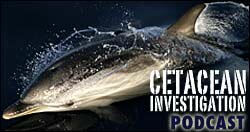Southern Elephant Seals

A Social Gathering
Sperm Whales in Greece.
2 minutes - Flash Video (No Narration)
11.11.2007
Genevieve Johnson - earthOCEAN
(If you want to see her other articles, you can find them at the site of our mba essay writing service.)
The sperm whale is the world's largest toothed predator. It also has the largest brain, the largest nose, and lives its life among a strongly bonded family group.
These factors alone make sperm whales among the most fascinating creatures on Earth, and a species I am captivated by.
Spending up to 80% of their lives deep beneath the sea surface, it is rare to encounter sperm whales in their oceanic habitat. It is even more unlikely to come across a socializing family.
The Hellenic Trench in the Greek Ionian Sea is one of only a handful of places where the chances of encountering a sperm whale family increases slightly.
Sperm whales are capable of arousing a sense of awe and wonder like few other animals. Seeing them at close quarters and in their element is a humbling experience. So when the opportunity arose this summer to film sperm whales in Greece with Dr. Alexandros Frantzis, we jumped at it.
When viewed from the surface, little of the sperm whales body is exposed, in fact they look very much like a floating log. However, when you slip in the water, it is a completely different story. In order to gain the unique perspective necessary when making a film about these animals, we got in the water to film a social group.
Despite their comparatively enormous size, Chris and I felt very comfortable approaching a group of 14 whales. We kicked our fins gently and the whales appeared undisturbed. As we got closer, they materialized in all their colossal grandeur. We could see the tails slowly beating vertically, leading our eyes to the white under slung jaws and distorted noses. Their small eyes were clearly in view and seated on ridges on either side of the head. Each of these whales was approximately the size of a school bus – I didn't dare think of the combined tonnage of all these sperm whales.
This was a close knit social group, a family comprising the young of both sexes, together with mothers, daughters, sisters, aunties, grandmothers and possibly even great grandmothers. The family wasn't swimming, nor were they resting, they were socializing. Most of the whales were vertical with heads pointing toward the surface. They assumed a variety of orientations, the movement between them pure synergy. They were constantly touching, rolling and rubbing bodies amid a cacophony of communication codas. Extended flippers seemed to reassure, as they gently caressed one another with tail sweeps and open jaws. It was the most moving wildlife spectacle I have ever witnessed. Weightless in their ocean realm, the whales' 30-60 ton bodies were as graceful and gentle as a troop of ballerinas.
Socializing sperm whales in the Ionian Sea, Greece.
Photo - Chris Johnson
We were mesmerized by the writhing mass of whale bodies. In what appeared to be a rough introduction to life, a tiny calf was jostled between two giants, looking for an instant as though it would be squashed. But there was no chance of that. Delicate and precise in their movements, the scene before us was so intimate and tender, that the strong bond between this family was obvious.
They seemed curious, shy, gentle and concerned for the safety of their young. When under attack by natural predators such as killer whales, or human predators such as whalers, sperm whales are well known to defend each other vigorously, even at the cost of their own lives. For me, this kind of altruism sets sperm whales apart from most of the animal kingdom. Very few species, including humans, would sacrifice their own lives for the sake of others.
We spent three incredible days with this family, observing and collecting data, all of which adds to what is known about the social complexity of this species.
I worry for this family and the other whales of the Hellenic Trench. Their future is far from secure, and few people are championing their cause. Perhaps the glimpse we have captured into their lives will make them a little more accessible to those who are unaware of their presence.
Video programs can be used for educational and non-commercial use only. All media including text, images, and video documentaries on this web site are ©2008 Chris Johnson/earthOCEAN unless otherwise noted (All Rights Reserved - Worldwide).
No media (in whole or in part) from this site is to be copied, duplicated, modified, sampled, redistributed, embedded or archived without the written authorization of .
